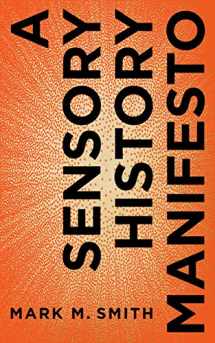
A Sensory History Manifesto (Perspectives on Sensory History)
Book details
Summary
Description
A Sensory History Manifesto is a brief and timely meditation on the state of the field. It invites historians who are unfamiliar with sensory history to adopt some of its insights and practices, and it urges current practitioners to think in new ways about writing histories of the senses.
Starting from the premise that the sensorium is a historical formation, Mark M. Smith traces the origins of historical work on the senses long before the emergence of the field now called "sensory history," interrogating, exploring, and in some cases recovering pioneering work on the topic. Smith argues that we are at an important moment in the writing of the history of the senses, and he explains the potential that this field holds for the study of history generally. In addition to highlighting the strengths of current work in sensory history, Smith also identifies some of its shortcomings. If sensory history provides historians of all persuasions, times, and places a useful and incisive way to write about the past, it also challenges current practitioners to think more carefully about the historicity of the senses and the desirability--even the urgency--of engaged and sustained debate among themselves. In this way, A Sensory History Manifesto invites scholars to think about how their field needs to evolve if the real interpretive dividends of sensory history are to be realized.
Concise and convincing, A Sensory History Manifesto is a must-read for historians of all specializations.


We would LOVE it if you could help us and other readers by reviewing the book
Book review



